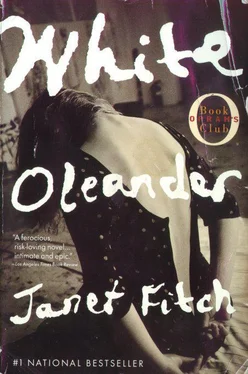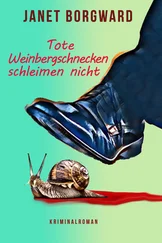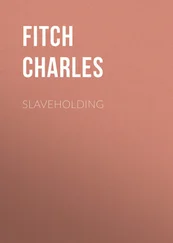Janet Fitch - White Oleander
Здесь есть возможность читать онлайн «Janet Fitch - White Oleander» весь текст электронной книги совершенно бесплатно (целиком полную версию без сокращений). В некоторых случаях можно слушать аудио, скачать через торрент в формате fb2 и присутствует краткое содержание. Жанр: Современная проза, на английском языке. Описание произведения, (предисловие) а так же отзывы посетителей доступны на портале библиотеки ЛибКат.
- Название:White Oleander
- Автор:
- Жанр:
- Год:неизвестен
- ISBN:нет данных
- Рейтинг книги:3 / 5. Голосов: 1
-
Избранное:Добавить в избранное
- Отзывы:
-
Ваша оценка:
- 60
- 1
- 2
- 3
- 4
- 5
White Oleander: краткое содержание, описание и аннотация
Предлагаем к чтению аннотацию, описание, краткое содержание или предисловие (зависит от того, что написал сам автор книги «White Oleander»). Если вы не нашли необходимую информацию о книге — напишите в комментариях, мы постараемся отыскать её.
White Oleander — читать онлайн бесплатно полную книгу (весь текст) целиком
Ниже представлен текст книги, разбитый по страницам. Система сохранения места последней прочитанной страницы, позволяет с удобством читать онлайн бесплатно книгу «White Oleander», без необходимости каждый раз заново искать на чём Вы остановились. Поставьте закладку, и сможете в любой момент перейти на страницу, на которой закончили чтение.
Интервал:
Закладка:
But I couldn’t stop the thought that, really, what exactly was I saving them for? When would I ever need a two-hundred-dollar Jessica McClintock dress again? It was a roast-goose-with-chest-nuts dress, Puccini at the Music Center, gold rims on china. I looked at Rena in her shiny red blouse, unbuttoned to the third button, high heels, and jeans. Niki, setting up kitchen appliances, magenta hair and black polyester. Yvonne, round as a watermelon in her purple baby doll dress with a swirl pattern from the sixties, sadly arranging the baby furniture, posing a worn teddy bear in the high chair.
Why couldn’t anybody ever hang on to anything? You never believed in sentiment, Mother, you saved only your own words, one picture of my grandmother and one of your 4-H cow. Only Claire could hold memory. It was the present that she couldn’t sort out.
“Someone gave it to me,” I finally said to Rena. “So?” Rena looked up from her hangers. “You’re lucky, someone gave to you. Now you sell, get money out.” I stood there, sullen, my arms still full of T-shirts. “You want car?” Rena said. “Artist college? You think I don’t know? How you think you pay? So this dress. Pretty dress. Someone gave. But money is . . .” She stopped, struggling to find the words, what money was. Finally, she threw her hands up. “Money. You want remember, so just remember.”
So I did it. I marked a price on my crimson velvet dream. I marked it high, hoping it wouldn’t sell. I marked them all high. But they sold. As the sun got warm, the hard bargainers left and the couples came, lazily, arm in arm, old people out for a stroll, young people. The T-shirts, the pants, the jackets went. But by afternoon, the crimson dress was still unsold. People kept asking Rena if it was really one hundred dollars.
“What she say,” Rena replied in her deep voice, implying helplessness.
“It’s a Jessica McClintock,” I said defensively. “Never been worn.” My mistake, for anticipating there would be a future, that the dream would just go on and on.
I could still remember how I looked in it when I tried it on at the store in Beverly Hills. I looked innocent, like somebody’s daughter, somebody’s real daughter. A girl who was cared for. A girl in that dress wasn’t a girl who had a beer and a cigarette for lunch, who lay down for the father on carpet pads in an unfinished house. It wasn’t a dress that knew how to make a living if it had to, that had to worry about its teeth and whether its mother would come home. When I showed it to Claire, she made me turn for her like a ballerina on a music box, her hands clapped to her mouth, pride flowing from her like tears. She believed I was that girl. And for a moment, so did I.
All day, I helped them on with it, slid the satin lining over their sweaty shoulders, zipped it up as far as it would go without straining. After the fifth woman had tried it on, I started not caring so much. At about three, a group of girls came around, and one of them kept looking at the red dress, holding it up to herself. “Can I try this on?”
I took the plastic off, slid the dress down her arms, over the pale downy hair, pulled it along her body, zipped the back as she held up her dark ponytail. It looked just right on her. As it had never looked on me. I’d never seen the girl before. She didn’t go to Marshall. She probably went to Immaculate Heart or the French School. A cared-for girl, someone’s daughter. I held it for her as she went to the 7-Eleven to call her mother. Fifteen minutes later, an attractive older woman showed up in a butter-yellow Mercedes, black linen slacks, suede moccasins with horse bit buckles. I helped the girl into the dress again, and the woman gave me the hundred, a single crisp bill. They were going to a cousin’s wedding in New York. The dress would be perfect. I could tell from the mother’s expression that she knew exactly what it was worth.
We went on until five, then started breaking it down, loading up the van and Niki’s pickup truck. All my things had sold. I sat on the fender of the van and counted my money. I’d made over four hundred dollars.
“See, not so bad,” Rena said, balancing a box of plates on her hip. “How much you get?”
I mumbled it, ashamed, but also a little proud. It was the first money I’d ever earned.
“Good. Give me hundred.” She held out her hand.
“What for?”
She snapped her fingers, extended her hand again.
“No way.” I held the money behind my back. Her black eyes sparkled with bad temper. “What, you think you sell all by yourself on streetcorner? You pay me, I pay Natalia, Natalia pays landlord, what you think? Everybody pay somebody.”
“You said I could keep it.”
“After pay me.”
“For Christ’s sake,” Niki said, looking up from where she was arranging cheap clothes on a blanket on the ground. “Go ahead and pay her. You have to.” I shook my head no.
Rena shifted the box to the other hip, and when she spoke, her voice was harsh. “Listen to me, devushka. I pay, you pay. Just business. When was last time you had three hundred dollars in your hand? So how I hurt you?”
How could I tell her? What about my feelings, I wanted to say, except what was the point? With her it was all just money, and things that could be traded for money. She’d stolen something from me, and even got me to do the selling for her. I couldn’t help wondering what you would do, Mother. It didn’t apply. I couldn’t imagine you at the mercy of Rena Grushenka, in the parking lot of Natalia’s Nails, selling your clothes, crying over a dress. I didn’t know what else to do, so I held out the hundred, the red dress hundred, and she snatched it from my hand like a dog bite.
But as I sat in bed, listening to the noise and laughter and occasional crash from the living room, I knew that even you had to pay someone now, for your pot and your inks and the good kind of tampons, dental floss and vitamin C. But you would come up with a compelling reason, a theory, a philosophy. You’d make it noble, heroic. You’d write a poem about it, “The Red Dress.” I could never do that.
Out in the living room, someone put on an old Zeppelin album. I could hear them singing along in their thick accents, the churning of Jimmy Page’s guitar. It was four in the morning and I could smell melting candle wax, dripping in great pools on the tables and windowsills. I didn’t need Claire’s candle magic book to see burning house written there. It was why I slept in my clothes, kept my shoes by the bed, money in my wallet, most important things in a bag by the window.
You’d think they’d try to get some sleep—the next day we were going to the flea market at Fairfax High, to sell our sambo statuettes made of bottlecaps, trays painted with botanical nightmares, never-worn baby clothes, and all the moldy Reader’s Digests. But I could tell, they wouldn’t sleep until Monday. I hoped I wouldn’t see anyone I knew.
I turned over the page, started another canoe. Silver on black. The door opened, Rena’s friend Misha stumbled in, posed, playing air guitar along with Jimmy, his plump red lips like an enormous infant’s. He was practically drooling. “I come to see you, maya liubov. Krasivaya devushka.”
“Go away, Misha.”
He staggered over to my bed, sat down next to me. “Don’t be cruel,” he sang, like Elvis, and bent to drool on my neck.
“Leave me alone.” I tried to shove him off, but he was too big and loose, I couldn’t find anything solid to push against.
“Don’t worry,” he said. “I don’t do nothing.” He lay down on the bed next to me, spread out like a stain. The alcohol reek was a miasma, it reminded me that there were snakes that stunned their prey with their breath. “I am only so lonesome.”
Читать дальшеИнтервал:
Закладка:
Похожие книги на «White Oleander»
Представляем Вашему вниманию похожие книги на «White Oleander» списком для выбора. Мы отобрали схожую по названию и смыслу литературу в надежде предоставить читателям больше вариантов отыскать новые, интересные, ещё непрочитанные произведения.
Обсуждение, отзывы о книге «White Oleander» и просто собственные мнения читателей. Оставьте ваши комментарии, напишите, что Вы думаете о произведении, его смысле или главных героях. Укажите что конкретно понравилось, а что нет, и почему Вы так считаете.












